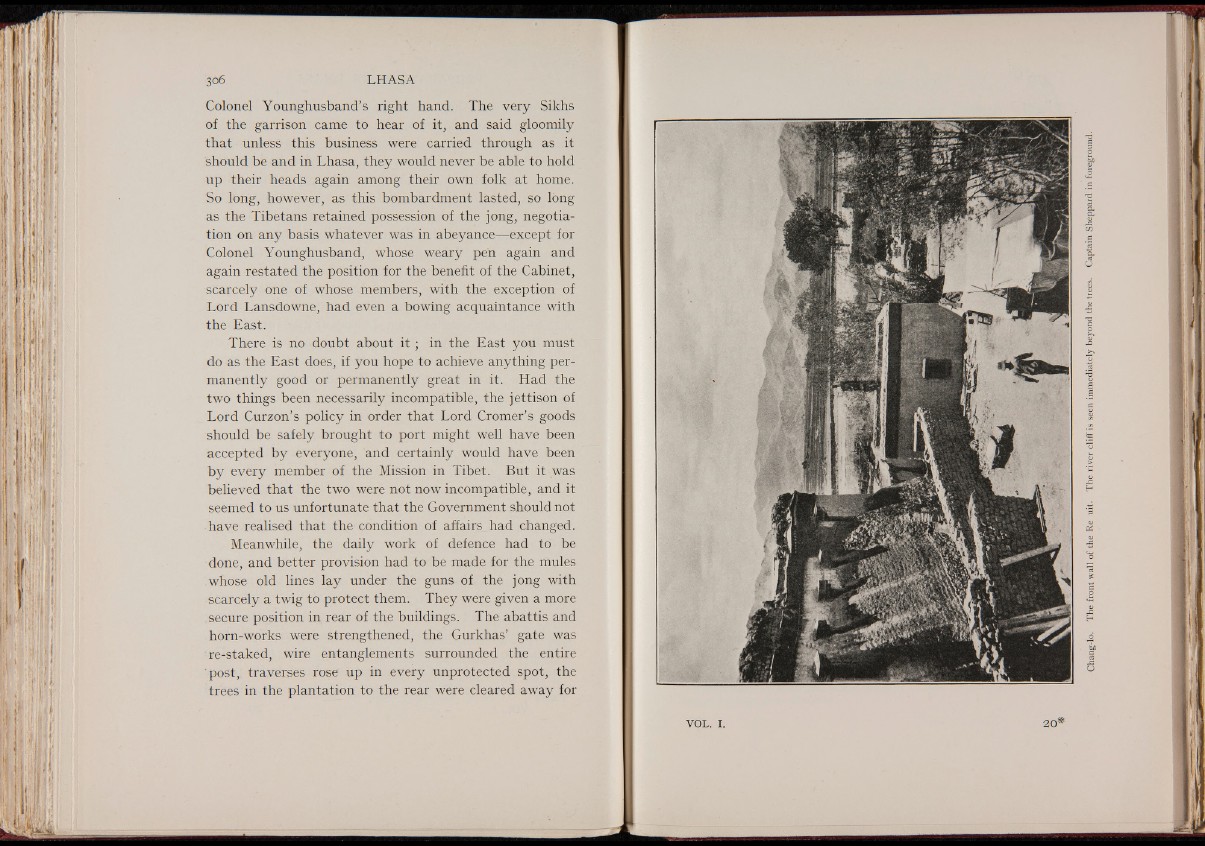
Colonel Younghusband’s right hand. The very Sikhs
of the garrison came to hear of it, and said gloomily
that unless this business were carried through as it
should be and in Lhasa, they would never be able to hold
up their heads again among their own folk at home.
So long, however, as this bombardment lasted, so long
as the Tibetans retained possession of the jong, negotiation
on any basis whatever was in abeyance— except for
Colonel Younghusband, whose weary pen again and
again restated the position for the benefit of the Cabinet,
scarcely one of whose members, with the exception of
Lord Lansdowne, had even a bowing acquaintance with
the East.
There is no doubt about it ; in the East you must
do as the East does, if you hope to achieve anything permanently
good or permanently great in it. Had the
two things been necessarily incompatible, the jettison of
Lord Curzon’s policy in order that Lord Cromer’s goods
should be safely brought to port might well have been
accepted by everyone, and certainly would have been
by every member of the Mission in Tibet. But it was
believed that the two were not now incompatible, and it
seemed to us unfortunate that the Government should not
have realised that the condition of affairs had changed.
Meanwhile, the daily work of defence had to be
done, and better provision had to be made for the mules
whose old lines lay under the guns of the jong with
scarcely a twig to protect them. They were given a more
secure position in rear of the buildings. The abattis and
horn-works were strengthened, the Gurkhas’ gate was
re-staked, wire entanglements surrounded the entire
post, traverses rose up in every unprotected spot, the
trees in the plantation to the rear were cleared away for
VOL. I.